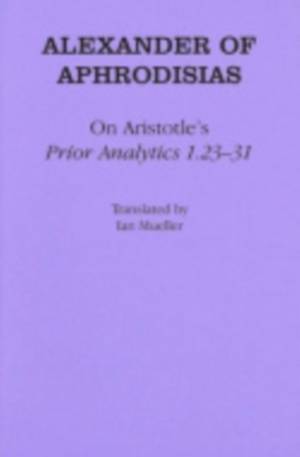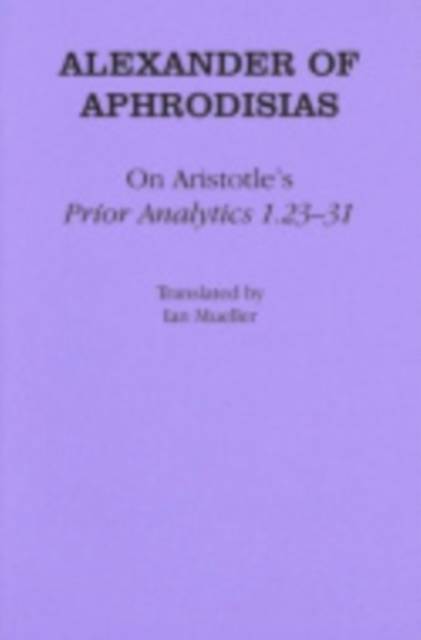
Bedankt voor het vertrouwen het afgelopen jaar! Om jou te bedanken bieden we GRATIS verzending (in België) aan op alles gedurende de hele maand januari.
- Afhalen na 1 uur in een winkel met voorraad
- In januari gratis thuislevering in België
- Ruim aanbod met 7 miljoen producten
Bedankt voor het vertrouwen het afgelopen jaar! Om jou te bedanken bieden we GRATIS verzending (in België) aan op alles gedurende de hele maand januari.
- Afhalen na 1 uur in een winkel met voorraad
- In januari gratis thuislevering in België
- Ruim aanbod met 7 miljoen producten
Zoeken
Omschrijving
In the second half of book 1 of the "Prior Analytics," Aristotle reflects on the application of the formalized logic he has developed in the first half, focusing particularly on the non-modal or assertoric syllogistic developed in the first seven chapters. These reflections lead Alexander of Aphrodisias, the great late second-century AD exponent of Aristotelianism, to explain and sometimes argue against subsequent developments of Aristotle's logic and alternatives and objections to it, ideas associated mainly with his colleague Theophrastus and with the Stoics. The other main topic of this part of the "Prior Analytics" is the specification of a method for discovering true premises needed to prove a given proposition. Aristotle's presentation is sometimes difficult to follow, and Alexander's discussion is extremely helpful to the uninitiated reader. In his commentary on the final chapter translated in this volume, Alexander provides an insightful account of Aristotle's criticism of Plato's method of division.
Specificaties
Betrokkenen
- Auteur(s):
- Vertaler(s):
- Uitgeverij:
Inhoud
- Aantal bladzijden:
- 184
- Taal:
- Engels
- Reeks:
Eigenschappen
- Productcode (EAN):
- 9780801444425
- Verschijningsdatum:
- 1/04/2006
- Uitvoering:
- Hardcover
- Formaat:
- Ongenaaid / garenloos gebonden
- Afmetingen:
- 165 mm x 241 mm
- Gewicht:
- 421 g

Alleen bij Standaard Boekhandel
+ 285 punten op je klantenkaart van Standaard Boekhandel
Beoordelingen
We publiceren alleen reviews die voldoen aan de voorwaarden voor reviews. Bekijk onze voorwaarden voor reviews.









